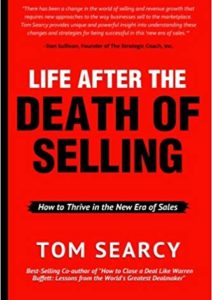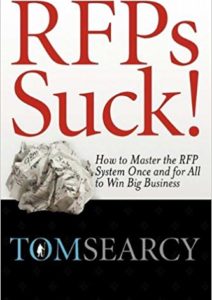One of my mentors is fond of saying, “Big changes in diet and exercise don’t change your life, they change your moment. Little changes executed every single day will change your life.” The same thing is true for selling. Brand new brochures, a re-done website, a new offer or package will have an impact on sales…in the short term. However, if you want to change your career, implement a few little changes every day and you will change your life.
#1: Set a maximum number of contact attempts.
I see salespeople chase a prospect with a barrage of emails, mail, and phone calls hoping to get connected. This is demeaning to you and possible grounds for harassment charges from them. Set your number of attempts, and if you can’t reach that person, set that prospect aside for 120 days before you start again. Or better yet, write them off and focus on someone who’s more interested.
#2: Ask for action from your prospect at every contact
Nothing shows engagement better than action. If you want to know if you’re gaining in the sales relationship, ask that person to do something every time you connect. It doesn’t have to be a big request; in many ways it’s better if it’s small. Examples include asking them to:
- Take a quick assessment
- Introduce you to someone
- Look at an article
- Provide you with a phone number
- Give you a piece of information
The point is that you want to make certain that they are making small investments in the relationship through demonstrated interest as you’re going through the sales process.
#3: Secure a commitment at the end of every call or meeting.
So simple, yet when I work with salespeople around the country, I get fuzzy answers to the questions, “What have they agreed to do next and when will it be done by?” or “What are they expecting from us and when is it due?”
Without firm commitments from each side and clear expectations, there is no measurable progress.
#4: ABC — Always Be CLARIFYING
You have heard the old saw, “A-B-C of selling, Always Be Closing!” I think you should change that. There are many places in a sales process during which Closing is not appropriate. However, every step in the sales process requires Clarifying. Some examples of Clarifying questions:
- What do they understand about how we can and will serve them so far?
- What of the things described so far match up with your needs?
- Which of the scenarios and case studies most closely match your circumstances?
These are just examples of clarifying questions that ensure alignment with the buyer in the process. Too often we’re selling so hard that we’re down the path a mile before we realize that no one is behind us — specifically the prospect.
Implementing these small changes into your sales skills
will pay off in every sales conversation, regardless of
the new big things you are adding to your process.
***


















